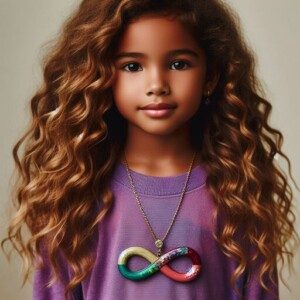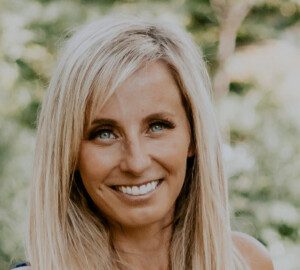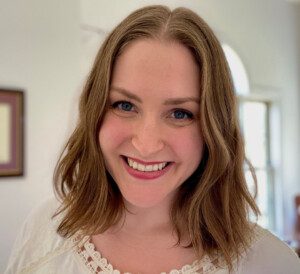And the neurotypicals think AUTISTIC people are the ones who are blunt and rude?
The rude things NTs say to parents of autistic children are unbelievable.
I was inspired to write this post after having a lengthy chat with a woman whose teen daughter has Level 3 Autism Spectrum Disorder.
This was at an ARC annual event for the county where I live. Due to being diagnosed with ASD myself only in 2022, I was hoping to meet other autistic adults for some very interesting conversations.
Though this expectation had not been met, I did seize an opportunity to introduce myself to a woman when she, along with her daughter, visited the information table in the lobby.
Earlier I had seen the girl happily conducting aggressive and nonstop rocking in her chair in the entertainment room.
At times she delighted in shaking a floppy tube-like thing in her hand.
So eventually, in the lobby, I went to her mother to see how receptive mom would be to me – some stranger approaching.
She smiled, and that was my cue to say, “Your daughter rocks the Spectrum!”
I then pulled apart my jacket to reveal my tee shirt which stated, amid a colorful infinity sign, “AUTISTIC. Deal With It.”
A short while later I joined “Olivea” at their table, and thus ensued a friendly conversation that centered around her nonverbal, happily stimming daughter, “Kaytie.”
At one point I commented, “I bet when you’re in public with Kaytie, people come up to you and say things that they shouldn’t.”
Olivea most definitely agreed. Though she said that most comments were positive, such as commenting on Kaytie’s beautiful smile, there were always the expected rude (aka blunt) ones – out of the mouths of neurotypicals.
Neurotypicals are the very people who get quite put off when Autistics blurt things out at the wrong time or make blunt remarks.
But it’s a well-known fact among parents of autistic children that they are routinely met with rude comments and questions by self-proclaimed normal people.
Now, before I began realizing that I was on the Autism Spectrum, I certainly would’ve taken interest in observing a teen at the grocery store who was behaving like Kaytie: seemingly tuned out from the world, unable to communicate and in constant motion.
But never would I have ever asked a rude question or made a rude comment. I would’ve already known that the teen was probably autistic and/or had an intellectual disability.
How does one grow up in an industrialized society without knowing that autism exists?
Even though my understanding of autism, for the longest time, had been limited to stereotypical presentations, I certainly had known since childhood that kids who behave in certain ways are either autistic or mentally handicapped.
Why, then, would I – with this pre-existing knowledge – make a blunt comment to a parent?
I didn’t ask Olivea for specifics, but she concurred twice that she gets predictable rude comments from strangers.
We can assume that most of these strangers are neurotypical, since the vast majority of people are NTs.
And the comments have come when Kaytie was calm and self-regulating with stimming behaviors such as swaying side to side while standing, and shaking her straw-sized floppy tubes.
It’s very puzzling how some NTs will allow themselves to get uptight over an autistic person’s spoken “unnecessary detail,” non-coated honest observations and frankness.
The Bluntness and Directness of Neurotypicals
I did a little googling, and the following are actual rude and unfiltered comments – reported by parents of autistic kids – by apparent neurotypicals.
“I can’t believe you had another child after him.”
“It’s because you didn’t breastfeed.”
“What did you do wrong when you were pregnant?”
“Is he verbal? Hello, is anyone home?”
“I’m so sorry. That’s awful.”
“What’s wrong with her?”
“What caused your child’s autism?”
These comments don’t appear to be intentionally hurtful. They seem to be brutally honest by common neurotypical adults.
The irony is that NTs often feel offense at the brutal honesty of autistic people.
For example when I was at an autism eat-and-greet, a young autistic man told me a coworker asked him if her outfit made her look fat. He said it did. She got very upset and accused him of being rude.
But he was being honest, giving a truthful answer to a question. His reply was solicited!
I wonder if that same woman is capable of making a dumb, unsolicited comment to a parent of an autistic child about their child’s behavior.
Two Moms’ Experiences in Public with Their Autistic Child

“When Luca stims he will either move his fingers and hands or rock himself,” says Christina Collura, a kindergarten teacher and creator of chalkboard-based educational products for children of all abilities.
“I once had someone comment under their breath, ‘What is wrong with that kid?’ or, ‘He has something wrong with him.’
“I immediately responded with an educated response (i.e., talked about stimming or self-soothing). A chance for education and advocacy.”
Here’s another experience: “My children do not show visible signs of autism that most people would pick up on in public,” begins Jesse Janelle, author, speaker and mom to two autistic young boys.
“What I’ve considered to be a rude comment is when I share that one of my children has autism and a person responds, ‘Oh wow! I never would have known!’ or, ‘Really? He’s so well-behaved!’
“I know these comments are meant to be kind, but to me they just reinforce the misunderstandings in general society of what autism is and what it looks like.
“Not every autistic child will flap their hands or try to elope. Statements like these minimize the experience of my children.”
Olivea has given out small cards that fit in one’s palm – with information about ASD on them – to strangers who ask questions such as, “Why is she doing that?”
Though it’s true that autistic people are known to be brutally honest and unfiltered, to be blunt and say the wrong things at the wrong times, let’s be real here as well:
Neurotypicals can be quite clueless about how offensive their comments are to parents of autistic kids.


 Christina Collura is the owner of
Christina Collura is the owner of 

































